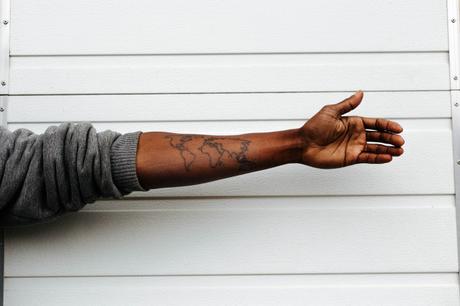
As a public health nurse working with underserved communities in Massachusetts in cancer prevention, I've been greatly challenged as we look at racism and inequality in communities that we serve. We are doing this because the evidence of health disparities in non-white communities is overwhelming. One of the ways to begin to address this is by seeing our programs and communities through the lens of racial equity, looking at why, historically, these communities have had worse health outcomes. Studies show that much of this is a result of prejudice and bias on the part of health care professionals; some of it conscious, but much of it unconscious.
It is hard, hard work. Like looking into a mirror and seeing the flaws on my skin, I come face to face with my own prejudices and my own wrong beliefs. I have continually had to confront my deep need for forgiveness and healing.
In every area of life, racism, prejudice, and bias exist - and that includes missions. We are an incomplete body when all we see is white leadership; when our missions conferences are overwhelmingly led by speakers who look like we do. We are a crippled group if we are only led by those who look like us, think like us, and act like us. And we are desperately in need of grace and forgiveness if we think this is okay.
In writing about racism and prejudice, I must first acknowledge my own inadequacy in talking about these things; there are far better and wiser voices, but in obedience I'm opening the door to a conversation that I pray will lead to something good. I also must admit that it is not an easy conversation to have, but it is too important to avoid.
I grew up as a privileged, little white girl in a country where people had varying shades of brown skin. It took me a long time to recognize my prejudice and even longer to be aware of my privilege. Some of my recognition of this came when I began to write. The more I wrote, the more I articulated my perspective, the more I was reminded that that's what it was - my perspective. I viewed the world through a particular lens and that lens affected all my experiences.
As I moved on to writing Passages Through Pakistan, I realized how my childhood was affected by growing up in a land that had been colonized not many years before I came into the world.
" There was a darker side to high tea I would only confront much later. This pleasure that so delighted me as a little girl was a survival of Pakistan's colonial past. The "British Raj" era, or the era of British rule, lasted for almost 100 years. It included the entire Indian subcontinent. Pakistan was born in 1948, and my parents arrived only five years later. I was completely blind to my privilege as a little, white, English-speaking girl. I cringe now at what I took for granted.
Those who were white and English-speaking went to the head of the line. Those who were white and English-speaking could casually criticize Pakistanis without thought. We traveled where we pleased, we went first class or third class on trains -it was our choice. We were educated and would have a world of opportunity. I thank God for parents that had the conscience and determination to discipline me and teach me in various ways that I was not better than those around me. Still, with a strong personality and ego to match, those lessons sometimes fell on ears unwilling to listen and a heart that would need continual reminders that privilege is not something I earned or deserved."*When I went back overseas, I was no longer a child. As an adult I had to confront some of my ugly and just plain wrong thoughts. Among them were these subtle, and deeply dangerous thoughts....
Read the rest here at A Life Overseas.

